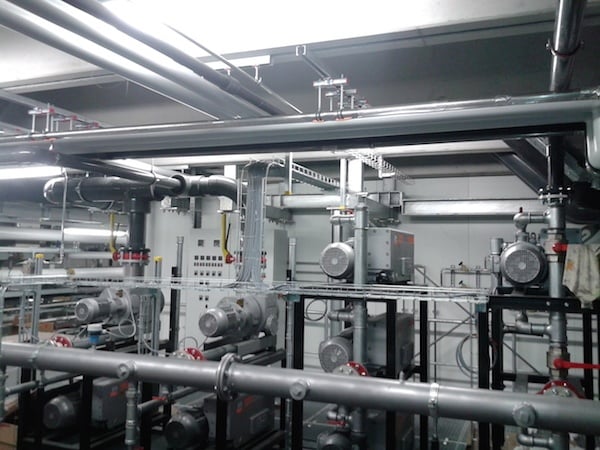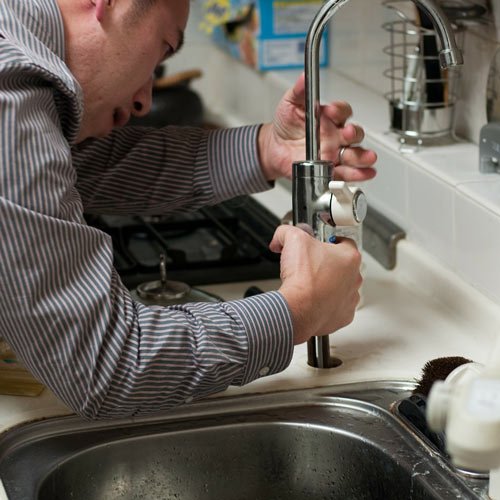Guidance on Hiring HVAC Installers As Subcontractors
Like any subcontracted job, HVAC installers offer flexibility, key skills and the ability to get a job done much more rapidly than in-house teams can often afford. In some cases, it is possible for a main contractor to always use the same company of HVAC installers for all of their work. This will often be the case where a large main contractor that constructs multiple buildings can afford to pay top dollar for their subcontractor to always be available when needed.
Finding the right HVAC installers
For smaller-scale enterprises, this is not always possible, so finding the right HVAC installers may mean turning to different firms or individual installation operatives every time. Of course, this can be a time-consuming process because you will need to check the relevant experience and qualifications of each subcontractor. That is why it is often better to turn to a specialist in every kind of subcontracting job as your first port of call.
A specialist subcontracting firm will be able to provide you with an on-demand service that means obtaining just the right number of HVAC installers for your project to keep it on schedule. Commonly other subcontractors will want to gain access to a site while air-conditioning, heating and ventilation systems are being installed. As such, it is always best to have the work carried out quickly without compromising on professionalism.
The Training and Qualifications Required For HVAC Installers
Regardless of the procurement route you go down when subcontracting work to HVAC installers, it is essential that you ensure the workers concerned are properly qualified for the sort of installation project you have. After all, not every HVAC installation will include air-conditioning while every air-conditioning installation will necessarily include heating.

Deciding which qualifications are needed is an important factor in ensuring the job is carried out professionally but it also plays a part in your costs. In other words, paying for an over-qualified installer for a relatively simple installation job is likely to be a false economy. Although you may need a fully qualified engineer to carry out work on heat exchange systems, it is probable that any HVAC installers are capable of fitting ducting.
Therefore, it is likely you will need an HVAC installer to at least have a level 2 BTEC in such installation work and a level 3 for more advanced jobs. In Ireland, you should be looking for F-Gas registration, ideally category 1, and specific training in air-conditioning maintenance and installation work.
Specialist Skills and HVAC Installers
Although your HVAC installation project may be standard for your sector of the economy, most HVAC installers will work in specialist fields. So, if you want the right sort of contractor to install your system for you, then it will be worthwhile ensuring the engineers concerned have the correct experience and skills.
For instance, some HVAC installers specialise in refrigeration work. You may need this if your HVAC project is in a laboratory, a data centre where there are numerous servers or even in a retail environment where certain perishable foods will need to be kept chilled. There again, your HVAC installers might need to be experienced with heat pump work or even more skilled with ventilation services than is usual.

In some cases, you might need HVAC installers who are also experienced with health and safety matters. Although this is an aspect of all installation jobs that installers must take seriously, it is especially the case if the installation work will be carried out as part of a renovation when the building concerned will be in continuous use while the work is carried out.
The Benefits of Subcontracting HVAC Installation Work
If you employ your own team of HVAC installers, then the bottom line is that you need sufficient work coming in to keep them occupied. Although many qualified HVAC installers will be able to turn their hands to other sorts of work, such as data cabling or electrical installations, they are over-qualified for such work and will consequently create a drain on financial resources if they are employed in this way.
Instead, hiring HVAC installers as and when they are needed on a contractor model is a much more effective way for most firms to manage their budgets. Since HVAC installation work usually comes about when new buildings are erected, the whole industry is geared up in much the same way as the construction industry. In short, it is designed to be flexible in times of high, as well as low, demand.
In addition, using a firm that specialises in subcontracting HVAC installers and other skilled operatives means being able to secure the manpower you need at a fair price just when you need it. Of course, you could also use the same firm for your other building project requirements at the same time, such as subcontracted plumbers, technicians and electrical installers, to name but a few.